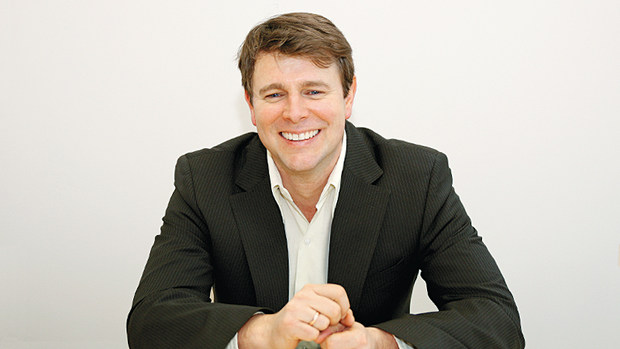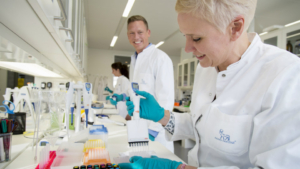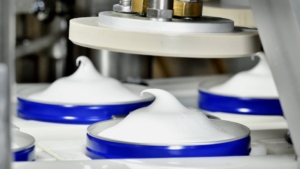
Derrick Williams: Fostering collaboration and R&D quality
In an era when Member States are doing their utmost to limit national exposure in the EU budget, making the right choices has become more crucial than ever before to shaping Europe's future.
The problem with the current tenuous economic situation is that research-driven sectors like biotechnology need reliable support. Without it, they will be unable to deliver jobs and growth in the global markets of the future among them biological production, personalized medicine and health-enhancing nutrition. To remain at the forefront of these fields and employ funds effectively, Europe has to foster even more collaboration, while at the same time putting frameworks in place to prevent research projects from being being carried out more than once. Both Big Pharma and global agribiotech players have to fully implement biotechnological platform technologies in product development. To improve their products, global industry leaders like BASF in chemistry, for example, or Nestlé in nutrition increasingly rely on biotechnologies invented by academic groups and perfected by life sciences SMEs. While this biologisation of industry is moving forward at a global scale, continuous support for collaboration is essential to ensure that innovations continue to flow steadily in both directions. In the past, Europe has supported R&D collaboration with significant amounts of funding (Framework Programmes) as well as through the creation of European research infrastructures provided by the the European Strategy Forum on Research Infrastructures (ESFRI). One example is the EU biobanking resource BBMRI, which is aimed at pooling data from local biobanks in Europe and harnessing it for drug target and biomarker discovery. This lays the foundation for personalised medicine and therapies that target diseases where they need to be battled at their roots. Better collaboration and data standardization are key to squeezing the greatest possible gain from pooled resources. That rule of thumb is also true for other collaborative EU projects that generate huge datasets for the research community. To ensure that public funds are invested well, one fairly simple step would be to make collaboration and standardization of research outcomes i.e. by means of ring tests a prerequisite for EU funding. This would help improve comparability in research results, and prevent duplication in research projects. The only way to guarantee the high-quality results that future markets will demand is through collaboration and networking in the 27 Member States of the European Union, Switzerland and Norway. Only through collaboration among all the stakeholders in the value chain can we set the common standards necessary to take full advantage of vast projects, like searching cancer patient genomes for new targets and diagnostic biomarkers. Realizing European synergies can only happen, however, if potential partners are aware of one another. EU science, research and industry has yet to make really good use of the advantages provided by a common market, when these could be helping to drive even faster technology transfer and even more flexible labour. And at the end of the day, establishing a truly sustainable future through biologisation will never be achieved without even more political commitment.
Derrick Williams
Derrick Williams is the head of communications at the European Biotechnology Network in Brussels. A biologist, the US native is a science correspondent and media professional who has worked in Europe since 1996. Williams is a journalist and PR professional in a variety of different formats, including both broadcast media and print. His productions, TV reports and articles generally focus on helping the wider public better understand biotech and life sciences topics.




 Beiersdorf
Beiersdorf